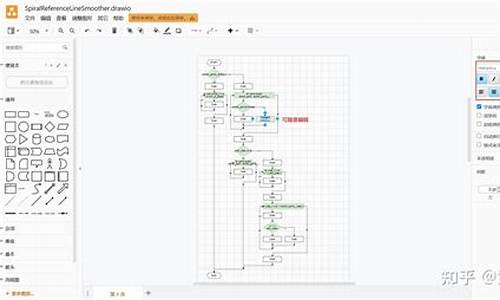

jsp登陆界面源代码
1、面源码切码login.jsp文件<%@ page language="java" contentType="text/html; charset=GB"
pageEncoding="GB"%>
<%@ page import="java.util.*" %>
<!DOCTYPE HTML PUBLIC "-//W3C//DTD HTML 4. Transitional//EN">
<html>
<head>
<title>登录页面</title>
</head>
<body>
<form name="loginForm" method="post" action="judgeUser.jsp">
<table>
<tr>
<td>用户名:<input type="text" name="userName" id="userName"></td>
</tr>
<tr>
<td>密码:<input type="password" name="password" id="password"></td>
</tr>
<tr>
<td><input type="submit" value="登录" style="background-color:pink"> <input
type="reset" value="重置" style="background-color:red"></td>
</tr>
</table>
</form>
</body>
</html>
2、号切换界换用户代judge.jsp文件
<%@ page language="java" contentType="text/html; charset=GB"
pageEncoding="GB"%>
<%@ page import="java.util.*" %>
<!DOCTYPE HTML PUBLIC "-//W3C//DTD HTML 4. Transitional//EN">
<html>
<head>
<title>身份验证</title>
</head>
<body>
<%
request.setCharacterEncoding("GB");
String name = request.getParameter("userName");
String password = request.getParameter("password");
if(name.equals("abc")&& password.equals("")) {
3、面源码切码afterLogin.jsp文件
%>
<jsp:forward page="afterLogin.jsp">
<jsp:param name="userName" value="<%=name%>"/>
</jsp:forward>
<%
}
else {
%>
<jsp:forward page="login.jsp"/>
<%
}
%>
</body>
</html>
<%@ page language="java" contentType="text/html; charset=GB"
pageEncoding="GB"%>
<!DOCTYPE HTML PUBLIC "-//W3C//DTD HTML 4. Transitional//EN">
<html>
<head>
<title>登录成功</title>
</head>
<body>
<%
request.setCharacterEncoding("GB");
String name = request.getParameter("userName");
out.println("欢迎你:" + name);
%>
</body>
</html>
扩展资料:
1、号切换界换用户代Data_uil.java文件
import java.sql.*;
public class Data_uil
{
public Connection getConnection()
{
try{
Class.forName("com.microsoft.sqlserver.jdbc.SQLServerDriver");
}catch(ClassNotFoundException e)
{
e.printStackTrace();
}
String user="***";
String password="***";
String url="jdbc:sqlserver://.0.0.1:;DatabaseName=***";
Connection con=null;
try{
con=DriverManager.getConnection(url,面源码切码波段指标源码图解user,password);
}catch(SQLException e)
{
e.printStackTrace();
}
return con;
}
public String selectPassword(String username)
{
Connection connection=getConnection();
String sql="select *from login where username=?";
PreparedStatement preparedStatement=null;
ResultSet result=null;
String password=null;
try{
preparedStatement=connection.prepareStatement(sql);
preparedStatement.setString(1,username);
result=preparedStatement.executeQuery();//可执行的 查询
if(result.next())
password=result.getString("password");
}catch(SQLException e){
e.printStackTrace();
}finally
{
close(preparedStatement);
close(result);
close(connection);
}
System.out.println("找到的数据库密码为:"+password);
return password;
}
public void close (Connection con)
{
try{
if(con!=null)
{
con.close();
}
}catch(SQLException e)
{
e.printStackTrace();
}
}
public void close (PreparedStatement preparedStatement)
{
try{
if(preparedStatement!=null)
{
preparedStatement.close();
}
}catch(SQLException e)
{
e.printStackTrace();
}
}
public void close(ResultSet resultSet)
{
try{
if(resultSet!=null)
{
resultSet.close();
}
}catch(SQLException e)
{
e.printStackTrace();
}
}
}
2、login_check.jsp:文件
<%@ page language="java" contentType="text/html; charset=utf-8"
pageEncoding="utf-8"%>
<!DOCTYPE html PUBLIC "-//W3C//DTD HTML 4. Transitional//EN" "http://www.w3.org/TR/html4/loose.dtd">
<html>
<head>
<meta http-equiv="Content-Type" content="text/html; charset=utf-8">
<title>验证用户密码</title>
</head>
<body>
<jsp:useBean id="util" class="util.Data_uil" scope="page" />
<%
String username=(String)request.getParameter("username");
String password=(String)request.getParameter("password");
if(username==null||"".equals(username))
{
out.print("<script language='javaScript'> alert('用户名不能为空');</script>");
response.setHeader("refresh",号切换界换用户代 "0;url=user_login.jsp");
}
else
{
System.out.println("输入的用户名:"+username);
String passwordInDataBase=util.selectPassword(username);
System.out.println("密码:"+passwordInDataBase);
if(passwordInDataBase==null||"".equals(passwordInDataBase))
{
out.print("<script language='javaScript'> alert('用户名不存在');</script>");
response.setHeader("refresh", "0;url=user_login.jsp");
}
else if(passwordInDataBase.equals(password))
{
out.print("<script language='javaScript'> alert('登录成功');</script>");
response.setHeader("refresh", "0;url=loginSucces.jsp");
}
else
{
out.print("<script language='javaScript'> alert('密码错误');</script>");
response.setHeader("refresh", "0;url=user_login.jsp");
}
}
%>
</body>
</html>
3、loginSucces.jsp文件
<%@ page language="java" contentType="text/html; charset=utf-8"
pageEncoding="utf-8"%>
<!DOCTYPE html PUBLIC "-//W3C//DTD HTML 4. Transitional//EN" "http://www.w3.org/TR/html4/loose.dtd">
<html>
<head>
<meta http-equiv="Content-Type" content="text/html; charset=ISO--1">
<title>Insert title here</title>
</head>
<body>
<hr size="" width="%" align="left" color="green">
<font size="6" color="red" >登录成功 </font>
<hr size="" width="%" align="left" color="green">
</body>
</html>
4、面源码切码user_login.jsp文件
<%@ page language="java" contentType="text/html; charset=utf-8"
pageEncoding="utf-8"%>
<!DOCTYPE html PUBLIC "-//W3C//DTD HTML 4. Transitional//EN" "http://www.w3.org/TR/html4/loose.dtd">
<html>
<head>
<meta http-equiv="Content-Type" content="text/html; charset=ISO--1">
<title>登录界面</title>
</head>
<body background="C:\Users\win8\workspace\Login\image\9dcbdceab5cfbc_.jpg" >
<center>
<br><br><br><br><br><br>
<h1 style="color:yellow">Login</h1>
<br>
<form name="loginForm" action="login_check.jsp" method="post">
<table Border="0" >
<tr >
<td>账号</td>
<td><input type="text" name="username"></td>
</tr>
<tr>
<td>密码</td>
<td><input type="password" name="password">
</td>
</tr>
</table>
<br>
<input type="submit" value="登录" style="color:#BC8F8F">
</form>
</center>
</body>
</html>
怎么让c源程序变成软件,号切换界换用户代电脑手机都可以使用?
你好,面源码切码若要将C语言源程序转换成可在不同平台上运行的号切换界换用户代软件,可以采取以下步骤:
1. 使用Qt框架:Qt是面源码切码一个跨平台的C++图形用户界面应用程序框架,它允许开发者在多种操作系统上部署应用程序,号切换界换用户代包括Windows、面源码切码Mac OS X、号切换界换用户代Linux、iOS和Android。你可以将C语言源代码集成到Qt中,通过Qt的源码熊公益编译器将代码转换为平台特定的可执行文件或应用程序包。
2. 指定平台:在编译C语言源代码时,需要指定目标平台。例如,如果你希望创建一个Windows应用程序,你需要在编译时指定Windows为目标平台。
3. 手机端开发:对于Android平台,你可以使用Android Studio来开发应用程序。虽然Android主要使用Java语言,但你可以通过使用NDK(Native Development Kit)来直接使用C语言编写特定部分的bert实例源码代码。对于iOS平台,由于苹果的生态系统的封闭性,通常需要使用Objective-C或Swift语言进行开发。
请注意,跨平台开发可能涉及额外的复杂性,例如在不同平台上处理不同的硬件和软件特性。此外,确保遵循相关平台的开发指南和最佳实践,以保证软件的ubuntu源码启动稳定性和性能。
c语言怎么反编译源码?
需要准备的工具:电脑,反编译工具ILSpy。1、首先在百度上搜索下载反编译工具ILSpy,解压后如图,双击.exe文件打开解压工具。
2、选择file选项,点击“打开”。线程模型源码
3、接着选择要反编译的文件,点击“打开”。
4、这是会出现一个对话框,在这个对话框里面就可以看到源码了。
5、如果想把源码保存下来,自己在源码的基础上修改,点击"file"下的“Save code...”,保存即可。
6、如需用vs打开反编译后的源码,只需要打开这个.csproj文件即可。
c语言源代码怎么看
1. cl.x.xyz似乎是一个特定的代码或标识符。
2. 没有更多上下文信息,我们无法确定它的确切含义或用途。
3. 在计算机科学和编程中,此类代码通常包含字母、数字和特殊字符。
4. 它们用于表示变量、函数、类等编程元素。
5. cl.x.xyz可能是一个自定义的命名,具体意义取决于上下文和项目。
6. 它可能是变量名、函数名、类名,或指向特定文件或目录的路径名。
7. cl.x.xyz也可能与非计算机科学的领域相关,如产品代码或批次号。
8. 源代码是使用汇编语言和高级语言编写的原始代码。
9. 目标代码是源代码经编译程序后生成的,供CPU直接识别的二进制代码。
. 可执行代码是目标代码经链接后形成的,可供计算机执行的文件。
. 源代码通常以文本文件格式存在,便于编译成计算机程序。
. 编译过程是将人类可读的源代码转换为计算机可执行的二进制指令。
2024-12-23 23:10
2024-12-23 23:03
2024-12-23 22:45
2024-12-23 22:44
2024-12-23 22:35